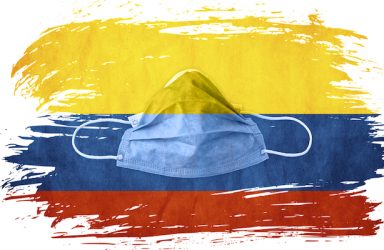Interview – H. Akin Ünver
Akin Ünver discusses computational social science (CSS) and IR, his research using CSS on the Syrian Civil War, and the use of the Internet by authoritarian leaders.
Opinion – Non-Military Threats and the Limits of National Security
Covid-19 has changed a shift in the attitude of how national security should not be viewed in a military-centric manner.
Is There a Right to Secession in International Law?
There is minimal and conflicting evidence in regard to the application of the right to remedial secession in practice, requiring consolidation from the ICJ.
Colombia: Coronavirus in a Scenario of Humanitarian Crisis
In Colombia coronavirus is not creating a ‘new’ humanitarian crisis scenario. Instead, it is adding a new layer of complexity and deepening its previous vulnerabilities.
Reversal of (Im)mobility Privilege and Borders During COVID-19
In many people’s minds, closing borders means repelling migrants. But, Covid-19 has ridiculed this assumption as borders are not vanishing but rather metamorphosing.
Can Marxism in International Relations Offer Solutions to the Eco-Crisis?
Marx’s conception of nature was ecological to its core, and Marxism as an IR theory provides a possible framework to discuss global environmental policy.
Human Rights and Democracy Amidst Militarized COVID-19 Responses in Southeast Asia
We need to be cautious of the forms of suppression and violence justified in a time of crisis, because they may indicate the emergence of a politics of intolerance and cruelty.
Oil During COVID-19: Essential Service or Subsidized Resource?
Rhetoric that places oil as central to energy security, or even as an essential service does not capitalize on the opportunities offered by COVID-19 to shift to zero or low-carbon.
Calling for Reflexive Solidarity in International Relations
By bringing reflexive solidary to our debate on the problem of Western-centred IR, new and diverse ways of ‘doing’ IR and thus ‘knowing’ international relations can flourish.
Interview – Zeynep N. Kaya
Zeynep Kaya tackles the repercussions of the Turkish invasion of Northern Syria, the position of women in Iraqi Kurdistan and the recovery of Yazidi communities.









